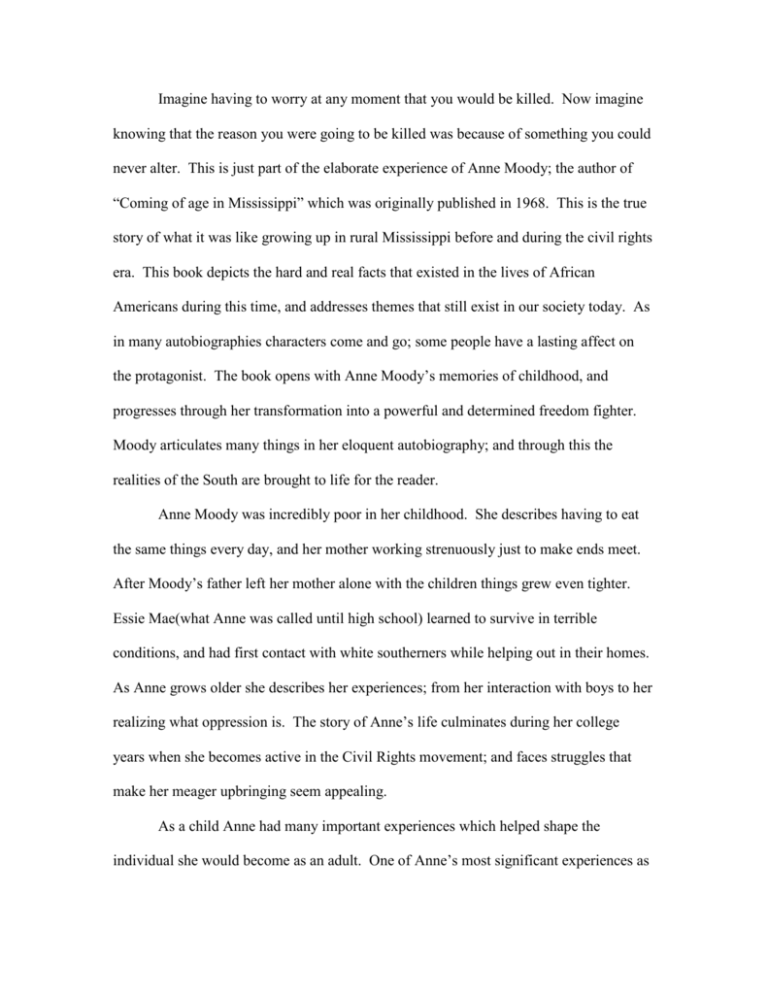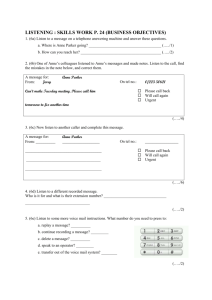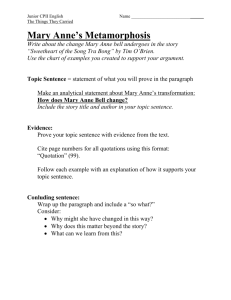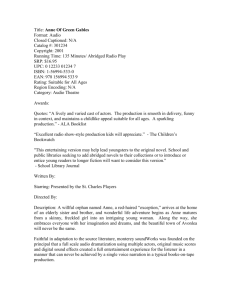Book Report, “Coming of Age in Mississippi”
advertisement

Imagine having to worry at any moment that you would be killed. Now imagine knowing that the reason you were going to be killed was because of something you could never alter. This is just part of the elaborate experience of Anne Moody; the author of “Coming of age in Mississippi” which was originally published in 1968. This is the true story of what it was like growing up in rural Mississippi before and during the civil rights era. This book depicts the hard and real facts that existed in the lives of African Americans during this time, and addresses themes that still exist in our society today. As in many autobiographies characters come and go; some people have a lasting affect on the protagonist. The book opens with Anne Moody’s memories of childhood, and progresses through her transformation into a powerful and determined freedom fighter. Moody articulates many things in her eloquent autobiography; and through this the realities of the South are brought to life for the reader. Anne Moody was incredibly poor in her childhood. She describes having to eat the same things every day, and her mother working strenuously just to make ends meet. After Moody’s father left her mother alone with the children things grew even tighter. Essie Mae(what Anne was called until high school) learned to survive in terrible conditions, and had first contact with white southerners while helping out in their homes. As Anne grows older she describes her experiences; from her interaction with boys to her realizing what oppression is. The story of Anne’s life culminates during her college years when she becomes active in the Civil Rights movement; and faces struggles that make her meager upbringing seem appealing. As a child Anne had many important experiences which helped shape the individual she would become as an adult. One of Anne’s most significant experiences as a child was her father leaving, and watching her mother struggle. Anne’s mother eventually settled with Raymond who helped take care of them. The things she saw through her mother helped shape Anne’s future world view. Her mother was simple, pious, and hard working. Her mother seems to exemplify the typical mindset of the “Negroes” of the southern states during this era. Moody’s experience working in various white homes were also very important to her childhood. Moody had the pleasure of being around a few whites who actually valued her as more than just a cleaning girl doing their chores. This was important because it solidified Anne’s notions of self worth, and helped her continue on her path, and gave her strength. In some ways Anne’s competition with her step cousin Darlene really helped push her above and beyond the typical “Negro” limitations. She was constantly striving to be the best in school; which was important because it allowed her to get out of her pre determined role. Most blacks in the rural south during this era never left the places they were born; and certainly never tried to change things. Anne learned that she wanted to stand up against the things that many blacks just accepted. \While working for Mrs. Burke Essie Mae refused to use the back door which she found disgraceful; by doing this simple thing she was already beginning to challenge the status quo. While in school Anne learned about Emmet Till’s murder. Which in many ways was much more than a murder. It is a terribly heinous crime which saw no justice served. Anne stated that up until then she hadn’t realized why people were killing black people. This was when things finally clicked in her head that people killed blacks, on many accounts because they could. This changed Anne’s life and gave her insight into the real struggle she was yet to face in her life. Anne had many ideas about what had led to the terrible treatment of blacks in rural Mississippi. Moody as a young girl considered white people lazy, and thought that black people simply worked harder, and this was why they were in the homes working; doing chores that white people would not trouble themselves with. She blamed the unequal treatment in the court systems on the fact that the police and elected officials were anti-black. Blacks during this period of time were terrified to vote. Therefore the people elected were always appointed by racial white people that valued their privilege in society. As is uniquely illustrated in the book; it was nearly impossible to get black people to vote in rural southern communities during this time period. The whites didn’t want it, and the blacks were too scared to attempt it. This was very backwards politically. Slavery may have ended; but it left a lasting legacy on the south. The social structure resembled a caste system with absolutely no social mobility. Moody often complained that for all her hard work in college, the only job she could get would be teaching in a racist school district; and becoming an uncle tom. The lines were drawn during this time; and to cross one meant terrible consequences. Moody herself had her life threatened time and time again for crossing such lines; her face even appeared on a KKK most wanted list. How terrifying; everything in the rural south perpetuated this system. The family was especially stringent in trying to advance this segregation and domination over the blacks in the region. Families tried to teach their children hate, and wanted to ensure that their white children would be guaranteed the same undeserved privilege that they were granted in society. In Anne Moody’s Mississippi the federal legislation meant absolutely nothing. Many of the townspeople even flaunted this violation of laws that they knew would not be enforced. In many instances in the book; when tragedy struck a few F.B.I. agents would come look around and then leave never to be heard from again. The American government did not care enough about the struggle that was going on in their own soil. Anne describes her deep discontent for the fact that the peace corps was off helping Africans starving in other places, when the Africans in our own country were being slaughtered and hung on the daily. This is terribly true. The states refused in a way to follow the new legislation, and took the stance that the government didn’t understand the south, and clearly wasn’t in a position to make judgments that they had to follow. When Moody participated in the highly noted Woolworth sit in she was harassed significantly, the harassers suffered no consequences. Moody went to jail for following national laws. This is a complete contradiction; the laws existed, but there was absolutely no one in the south upholding these laws. The law enforcers themselves were often the worse contributors to this racial discrimination. Anne Moody saw terrible things; she slaved away in rural Mississippi trying to convince people to do something as simple as vote. She saw her attempts fail time and time again. She began to lose hope; if blacks wouldn’t stand up for themselves how would things ever change? Moody feels as many people who have realized something incredible, how come no one cares as much as I do? This is valid. Blacks were suffering, but it seems as long as no one in their family turned up dead they didn’t care. In the end of the book Moody says “I wonder. I really wonder” in reference to the blacks overcoming the terrible conditions in the south and all over the United States. She had doubts because of the failed attempts she had been part of. Her own mother constantly told her to stop, to go away, and give up. How terrible, if your own mother doesn’t believe in you who will? Anne was told by her mother that she was not to come home, for fear that if she did she would be murdered, or bring harm to the rest of her family. Anne’s fears to a certain extent absolutely proved to be accurate. Blacks still are highly discriminated against. All it takes in one visit to any state penitentiary to discover this. Racism has and always will exist. Sad as this is it is true. I think that we have made quite a bit of progress since Anne wrote this book. We have a president who is black and nothing for nothing this says a lot. It was not just the black citizens who elected him. However it would be silly to think that racism and discrimination ended as the civil rights era faded away. People of color still struggle and until all people can become educated and empathetic it will continue to be this way. Moody’s experiences directly relate to all of the material covered in the civil writes era. Anne expresses the same wants and desires as the other freedom fighters during this era. She directly crossed paths with freedom riders, and participated in Martin Luther King’s speech in Washington D.C. She was there, she tried to fight. How much fighting can one person stand is a whole other question in and of itself. Anne in one section says that she thinks non-violence is all washed up. She stated while expressing her immense frustration “Non violence has served its purpose. If you don’t believe that then I know you must be white…if I find out you are white then I am through with you. If I find out that you are black I’ll do my best to kill you when I get to heaven” This quote shows Anne’s frustration with her own community as well as god. It is appropriate to see this response. The civil rights era is always illuminated with strong freedom fighters who never second guess their motives. How great to see some one who is real, a real person with real feelings who has been so affected that she can curse Martin Luther King Jr. and God in the same sentence. Anne saw many sides of the Civil Rights movement, she felt many things, and she bravely shared them with the world in her autobiography. Anne Moody was civil rights, just as we all are. Sometimes doing nothing is just as bad as doing everything. This book astounded me; I use the less proper name Anne because through reading this book I really believe that I came to know her. I wanted to know more, I wanted the story to never end. Her bravery empowered me, what a beautiful women she was. Before reading this book I took it for granted that all blacks during this era were part of the civil rights movement. I guess that I had always subconsciously assumed that the minute they heard people were standing up they all left their homes and joined up. This simply was not the case. As Anne put it, it seemed almost impossible, (even in towns where blacks significantly outnumbered whites) to get them to participate in any way. This saddened me. I completely understand Anne’s frustration; I can relate to her. Through her words the conditions and circumstances surrounding the civil rights era came alive. Never before have I been so moved by the words of a single woman. One part mentioned in the book that was most effective in driving home the point of Anne’s story an old man lifted up his cane and marched straight toward the cops, I read this and immediately cried. What an example; and yet he was stopped, they all were. Anne lost hope, and I don’t blame her. I would not change one word in this book. It is one of the most authentic books that I have ever had the pleasure of reading. This book is the 1960’s experience. Everyone in the 1960’s struggled in some way or another, as we continue to do today. This story and all of the experiences like it serve as a testament to what can happen when one group values themselves above another. This book is a reflection of our past. A skeleton in America’s closet exposed. A skeleton which I hope will never be imitated.









